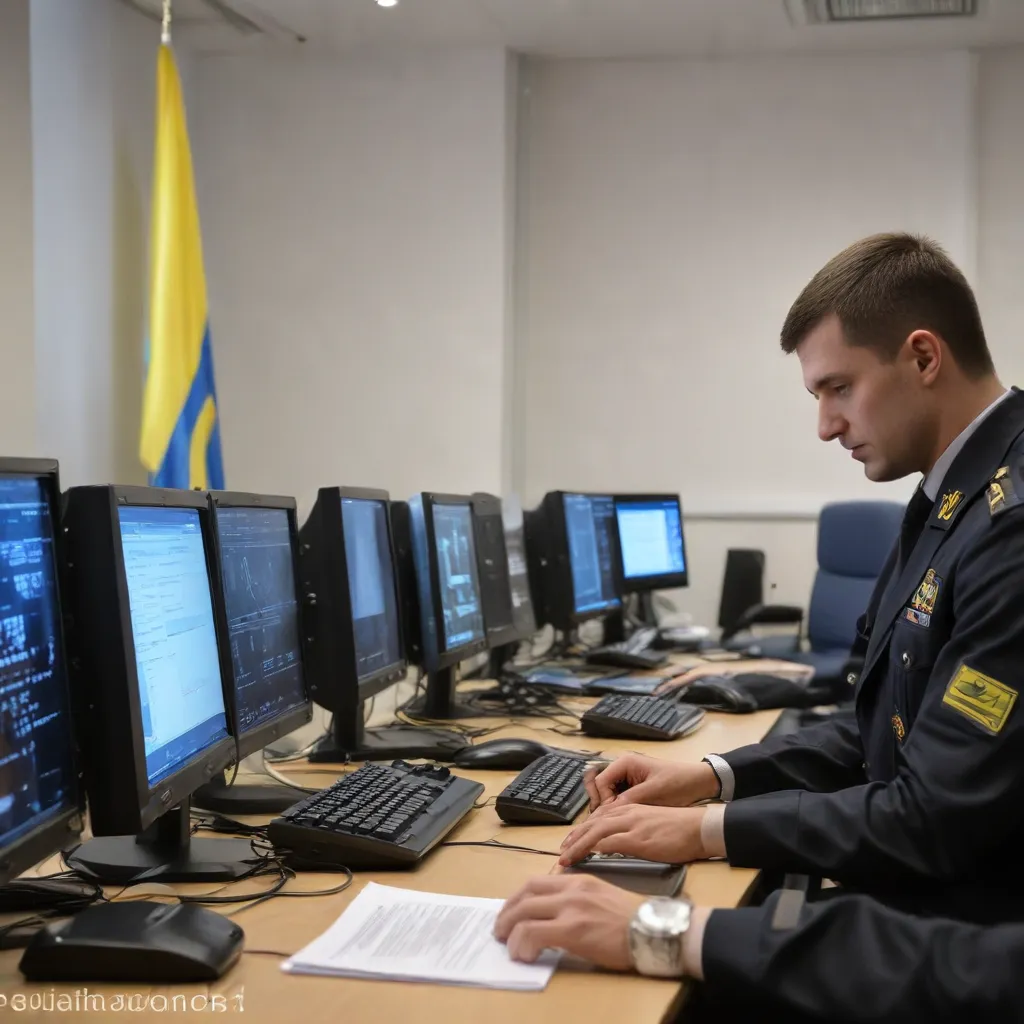
Securing Ukraine’s Digital Frontier: A Crucial Battleground
In the ever-evolving landscape of cybersecurity, the European Union Advisory Mission (EUAM) Ukraine has taken a proactive stance to equip the nation’s first-line defenders against digital threats. As the world grapples with a staggering 3,255 cyberattacks and operations between July and September 2023 – an alarming average of 28.3 attacks per day – the imperative to fortify Ukraine’s cybersecurity capabilities has never been more pressing.
Recent events in Ukraine have demonstrated the devastating impact of cyberattacks, with these virtual incursions becoming a weapon of choice in the ongoing conflict. To bolster the preparedness of Ukrainian law enforcement agencies, EUAM Ukraine has embarked on a mission to continuously develop the skills and expertise of cadets and staff from the Ministry of Internal Affairs (MoIA) universities.
Forging Digital Defenders: EUAM Ukraine’s Cutting-Edge Cybersecurity Training
From August 6-8, 2023, EUAM Ukraine’s experts visited Odesa to conduct a specialized cybersecurity training session for twenty cadets of the Odesa State MoIA University. Led by EUAM Adviser Dragos-Gabriel Dima, this intensive three-day program was designed to equip the cadets with the necessary skills and knowledge to defend against cyber threats and attacks.
The curriculum integrated the best European practices, techniques, and methods, as well as real-world scenarios, with a focus on information security, disaster recovery, and business continuity during cybersecurity incidents or offensive attacks on critical infrastructures. Dima emphasized the broader implications of cybersecurity, stressing that “for you as future investigators, it is important to understand that cybersecurity is not only about system or technical specifications. To be successful in this area, you need to get out from the comfort zone, change your mindset, embrace and foster a cybersecurity culture toward the new multi threats coming from cyberspace.”
Throughout the training, the cadets engaged in interactive sessions that blended theoretical lessons with practical exercises. They delved into the fundamentals and basic concepts of cybersecurity, gaining a deeper understanding of the impact of cyberattacks on society. The program was further enriched by an online lecture on “Investigating Social Engineering Crimes,” conducted by an expert from the Romanian National Directorate on Cybersecurity, who shared valuable insights from one of Europe’s key players in the field.
Fostering a Cybersecurity Culture: EUAM Ukraine’s Commitment
The cybersecurity training program in Odesa was a significant milestone in EUAM Ukraine’s ongoing efforts to create a robust cybersecurity culture within the country’s law enforcement agencies. As Anders Johansen, the Head of EUAM Odesa Field Office, highlighted, “In today’s Ukraine, the importance of cybersecurity knowledge and skills for future police officers cannot be overstated. As digital threats evolve, our defenders must be equipped to protect not only our physical borders but also our digital infrastructure.”
EUAM Ukraine’s commitment to this endeavor extends beyond the Odesa training session. The organization will continue to collaborate with MoIA universities and law enforcement agencies to jointly develop the necessary skills and expertise to face the challenges of both the present and the future. By empowering law enforcement with cutting-edge cybersecurity training, EUAM Ukraine aims to ensure the safety and resilience of Ukraine’s digital infrastructure, safeguarding the nation’s digital defenders against the growing menace of cyber threats.
The Evolving Landscape of Cybersecurity: Adapting to New Threats
The cybersecurity landscape is constantly evolving, with new threats and attack vectors emerging at an alarming rate. As the world becomes increasingly interconnected through digital technologies, the potential for devastating cyberattacks has amplified, posing a significant risk to individuals, organizations, and critical infrastructure alike.
To effectively combat these multifaceted threats, a comprehensive and proactive approach is essential. Law enforcement agencies, like those in Ukraine, must not only possess technical expertise but also cultivate a deeper understanding of the broader implications of cybersecurity. As emphasized by EUAM Adviser Dragos-Gabriel Dima, “To be successful in this area, you need to get out from the comfort zone, change your mindset, embrace and foster a cybersecurity culture.”
This emphasis on fostering a cybersecurity culture is crucial, as it enables law enforcement personnel to anticipate and adapt to the ever-changing nature of digital threats. By embracing a holistic approach that combines technical proficiency with a strategic, forward-thinking mindset, these digital defenders can proactively safeguard their nation’s critical assets and respond effectively to emerging cybersecurity challenges.
Conclusion: Building Ukraine’s Cyber Resilience
The EUAM Ukraine’s cutting-edge cybersecurity training for law enforcement cadets in Odesa represents a vital step in strengthening the country’s digital defenses. By equipping these future investigators with the knowledge, skills, and mindset to navigate the complex and ever-evolving cybersecurity landscape, EUAM Ukraine is playing a pivotal role in forging a new generation of digital defenders.
As the world continues to grapple with the escalating threat of cyberattacks, the significance of this initiative cannot be overstated. By fostering a robust cybersecurity culture within Ukraine’s law enforcement agencies, EUAM Ukraine is laying the foundation for a more secure and resilient digital future, one that can withstand the multifaceted challenges posed by the virtual battleground.
Through continued collaboration, training, and the exchange of best practices, EUAM Ukraine and its partners are poised to make a lasting impact on Ukraine’s cybersecurity readiness. As the country’s digital defenders rise to the occasion, they will not only safeguard their nation’s critical infrastructure but also serve as a model for others to emulate, strengthening the global community’s collective resilience against the ever-evolving cyber threats of the 21st century.












